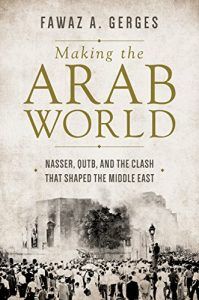Shadi Hamid in Foreign Affairs:
 Seven years since the heady days of early 2011, when massive, electrifying protests brought down the Egyptian dictator Hosni Mubarak, the political atmosphere in Egypt has turned somber. In 2013, General Abdel Fattah el-Sisi overthrew President Mohamed Morsi, a leader of the Muslim Brotherhood who had narrowly won Egypt’s first free presidential election the prior year. Since seizing power, Sisi has emptied the country of any real politics. His crackdown against the Muslim Brotherhood has been particularly brutal: he has jailed tens of thousands of Brothers, and designated the group a terrorist organization. On the regional stage, Egypt has found itself relegated to second-tier status. What was once the center of the Arab world today feels like a ghost of its former self.
Seven years since the heady days of early 2011, when massive, electrifying protests brought down the Egyptian dictator Hosni Mubarak, the political atmosphere in Egypt has turned somber. In 2013, General Abdel Fattah el-Sisi overthrew President Mohamed Morsi, a leader of the Muslim Brotherhood who had narrowly won Egypt’s first free presidential election the prior year. Since seizing power, Sisi has emptied the country of any real politics. His crackdown against the Muslim Brotherhood has been particularly brutal: he has jailed tens of thousands of Brothers, and designated the group a terrorist organization. On the regional stage, Egypt has found itself relegated to second-tier status. What was once the center of the Arab world today feels like a ghost of its former self.
In this environment, it is easy to forget that for much of the twentieth century, Egypt was the most consequential battleground in the struggle for the soul of the new Arab state. Following the formal dissolution of the Ottoman caliphate, in 1924, new ideologies and approaches to governing competed to fill the vacuum. In the 1930s and 1940s, during Egypt’s so-called liberal era, secularists, socialists, and Islamists vied for legitimacy in a chaotic but relatively free political atmosphere. The freedom did not last. In 1952, a clandestine cohort of young military officers led by a man named Gamal Abdel Nasser overthrew the Egyptian monarchy and eventually ended what little was left of Egypt’s liberal age.
More here.
